This article was medically reviewed by Luba Lee, FNP-BC, MS and by wikiHow staff writer, Danielle Blinka, MA, MPA. Luba Lee, FNP-BC is a Board-Certified Family Nurse Practitioner (FNP) and educator in Tennessee with over a decade of clinical experience. Luba has certifications in Pediatric Advanced Life Support (PALS), Emergency Medicine, Advanced Cardiac Life Support (ACLS), Team Building, and Critical Care Nursing. She received her Master of Science in Nursing (MSN) from the University of Tennessee in 2006.
This article has been viewed 117,634 times.
Oral thrush, which is medically referred to as oral candidiasis, is a fungal infection primarily caused by an increased number of candida yeast inside your mouth.[1] If you think you may have oral thrush, scroll down to Step 1 to find out what may be causing the increased fungus, and what the symptoms of oral thrush are. If you are hoping to learn about how to treat oral thrush, click here.
Steps
Looking for Early Symptoms
-
1Look for red and white lesions. One of the most apparent symptoms of oral thrush is the appearance of red and white lesions on different parts of the mouth. These parts can include your tongue, gums, tonsils or your inner cheek. These lesions create the same sort of pain that you would feel if you had a mouth sore, particularly when you put pressure on them.[2]
-
2Pay attention if angular cheilitis begins to form. Angular cheilitis is the drying out and cracking of the corners of your mouth. This is a common side effect of having oral thrush. The corners or your mouth may become cracked and red.[3]Advertisement
-
3Take note if eating or drinking makes your pain increase. For people with oral thrush, eating and drinking may become difficult. When the lesions that grow in your mouth become irritated, or have things like pieces of food scraping up against them, they can begin to bleed and the pain you feel will increase.[4]
-
4Pay attention to how the pain feels. Often, the pain caused by oral thrush can also bring a sensation of itchiness or a burning sensation. However, if you attempt to scratch a lesion, you will only scratch off the surface. While doing this won't increase the pain, it also won't make you feel any better.[5]
Looking for Late Symptoms
-
1Call a doctor if you have trouble swallowing. If oral thrush goes untreated, the lesions can actually spread to the back of your mouth and down your throat, towards your esophagus. If they are able to spread this far, you will feel a severe pain when you try to swallow anything, even water.[6]
- It may also feel like food is getting stuck in your throat each time you swallow.
-
2Watch out for fevers. In people with severely compromised immune systems, including those with HIV or cancer (especially if they are taking chemotherapy), the Candida yeast that causes thrush may spread from the mouth to the skin, or into the bloodstream and into other organs. In this case, a high fever will likely develop (unless the immune system is completely absent) and the patient will appear severely ill, will be unable to get out of bed and with pale, and will have clammy skin.[7]
Knowing What Causes Oral Thrush
-
1Know what causes oral thrush. Your mouth normally contains a small amount of candida fungi. The amount of fungi is kept in check by the presence of non-harmful bacteria. However, an imbalance can occur, causing an increased number of yeast cells to grow inside your mouth. When the yeast cells grow, you are more susceptible to oral thrush.[8]
-
2Know that brushing your teeth can prevent oral thrush. Brushing your teeth two or three times a day and flossing at least once a day are both very important activities. Good oral hygiene is essential when trying to prevent or fight off oral thrush. If you have poor oral health, your mouth can become an excellent place for fungi to grow.[9]
-
3Note that taking too many antibiotics can actually promote oral thrush. Antibiotics kill off bad bacteria. However, sometimes, they can also kill off too much good bacteria, which in turn can throw off the balance between good bacteria and candida, causing oral thrush to occur.[10]
-
4Know who is most at risk for getting oral thrush. Anyone can get thrush, but it's more common in certain populations. Babies and toddlers are more likely to get thrush, because their immune systems are not yet fully developed. The elderly are also more likely as their immune systems decline. Pregnant women have an increased risk, because the immune system is mildly suppressed during pregnancy.[11]
- People with diabetes are more likely to get thrush, especially if the diabetes is poorly controlled; this is because the extra sugar in the bloodstream feeds the yeast.
- People with an extremely suppressed immune system, such as those with HIV or cancer, or who are taking chemotherapy or high-dose steroids are more likely to get oral thrush.
- Alcohol also suppresses the immune system, and so those who drink a lot of alcohol are more susceptible to getting thrush.
Warnings
- If you notice any of these symptoms developing, see a doctor right away.⧼thumbs_response⧽
References
- ↑ https://www.mayoclinic.org/diseases-conditions/oral-thrush/symptoms-causes/syc-20353533
- ↑ https://www.nhs.uk/conditions/oral-thrush-mouth-thrush/
- ↑ https://www.aafp.org/afp/2007/0215/p501.html
- ↑ https://www.cdc.gov/fungal/diseases/candidiasis/thrush/index.html
- ↑ https://www.mayoclinic.org/diseases-conditions/oral-thrush/symptoms-causes/syc-20353533
- ↑ https://www.cdc.gov/fungal/diseases/candidiasis/thrush/index.html
- ↑ Kullberg BJ, Verweij PE, Akova M, et al; European expert opinion on the management of invasive candidiasis in adults. Clin Microbiol Infect. 2011 Sep;17 Suppl 5:1-12
- ↑ https://www.mayoclinic.org/diseases-conditions/oral-thrush/symptoms-causes/syc-20353533
- ↑ https://my.clevelandclinic.org/health/diseases/10956-thrush
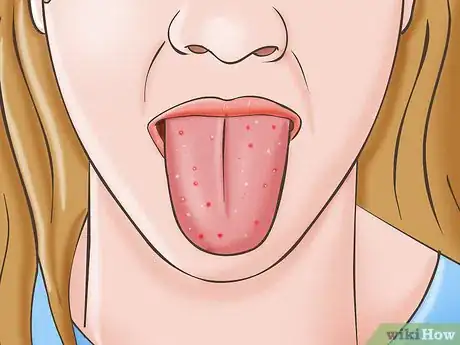







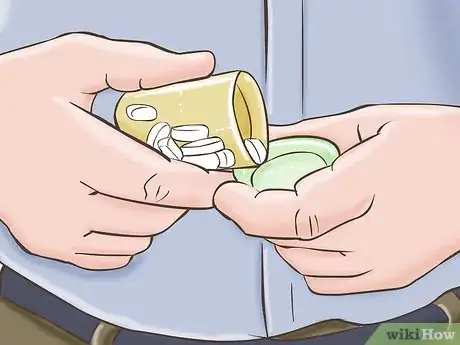


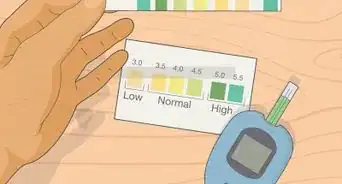

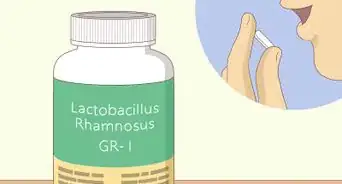



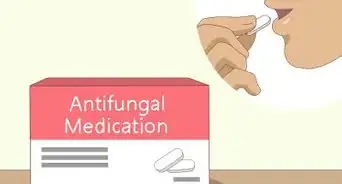


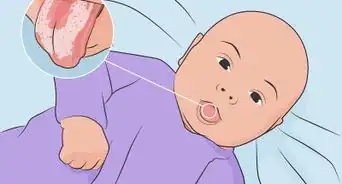


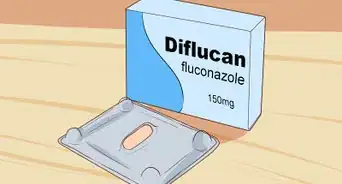









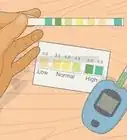

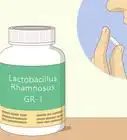




































Medical Disclaimer
The content of this article is not intended to be a substitute for professional medical advice, examination, diagnosis, or treatment. You should always contact your doctor or other qualified healthcare professional before starting, changing, or stopping any kind of health treatment.
Read More...